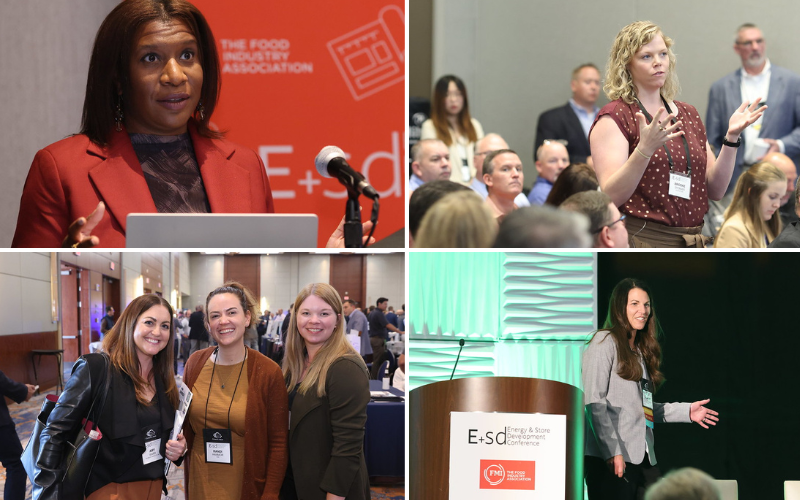By: Rebecca Daniels, Director, Education, FMI

There is a patchwork of local, state and federal regulations that impact store design and operations, and it's up to retailers to make sure the stitches align and look seamless. Keeping track of each piece can be challenging, however, especially when grocers have so many other considerations when updating their systems and stores.
Currently, the use of hydrofluorocarbons (HFCs) is top of mind among many retailers, as the U.S. Environmental Protection Agency (EPA) has proposed to roll out certain provisions of the American Innovation and Manufacturing (AIM) Act that passed in 2020. In July, the EPA issued a final rule to implement a 40% HFC reduction below historic levels from 2024 to 2028, building on the 10% phasedown step that went into effect in 2022 and 2023.
While cutting HFCs and transitioning to next-generation technologies are big-picture goals, operators must also pay attention to a host of current and potential rules regarding the use of these refrigerants, such as on the type/duration of recordkeeping, the use of imported systems, how to proceed with retrofits and more. Beyond HFCs, sustainability-focused regulations affected many facets of store upgrades, enhancements and construction. For example, if retailers are incorporating repurposed materials into their design, they need to be aware of things like takeback programs or toxicity concerns. Other sustainability features, like EV charging stations and stormwater capture systems, have some kind of oversight as well.
Of course, restrictions related to sustainability are layered into additional rules that affect store design plans, from local building codes to OHSA laws to ADA compliance. In this complex environment, those tasked with staying on top of the patchwork of regulations can benefit from learning and collaborating with others facing the same kind of issues.
The upcoming FMI Energy & Store Development Conference, Oct. 2-4, 2023, in Baltimore, includes a slate of programs to help refrigeration, energy and store development professionals navigate concurrent and often-thorny regulatory changes. In addition to sessions that address pressing regulatory topics, attendees can engage in small groups and at a one-one-level to share best practices and expand their network of resources.
The goal of the event is to provide retailers with actionable insights to design stores that are as resilient and compliant as they are customer centric. In addition to content on regulatory changes, the conference will cover more crucial topics for professionals in this sector of the food retailing business:
- The impact of supply chain challenges on store construction and maintenance
- Streamlining energy management and optimization
- Implementing more sustainable operations
- Understanding consumer needs and the in-store shopping experience


 Industry Topics address your specific area of expertise with resources, reports, events and more.
Industry Topics address your specific area of expertise with resources, reports, events and more.
 Our Research covers consumer behavior and retail operation benchmarks so you can make informed business decisions.
Our Research covers consumer behavior and retail operation benchmarks so you can make informed business decisions.
 Events and Education including online and in-person help you advance your food retail career.
Events and Education including online and in-person help you advance your food retail career.
 Food Safety training, resources and guidance that help you create a company food safety culture.
Food Safety training, resources and guidance that help you create a company food safety culture.
 Government Affairs work — federal and state — on the latest food industry policy, regulatory and legislative issues.
Government Affairs work — federal and state — on the latest food industry policy, regulatory and legislative issues.
 Get Involved. From industry awards to newsletters and committees, these resources help you take advantage of your membership.
Get Involved. From industry awards to newsletters and committees, these resources help you take advantage of your membership.
 Best practices, guidance documents, infographics, signage and more for the food industry on the COVID-19 pandemic.
Best practices, guidance documents, infographics, signage and more for the food industry on the COVID-19 pandemic.
